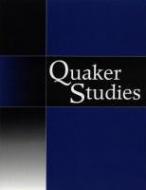
Article Title
Abstract
The parable of the husbandman was of great significance to Protestants of the seventeenth and eighteenth centuries, for many early modern religious groups developed aspects of their beliefs and identities through its interpretation. This article considers the ways in which re presentations of the husbandman differed between Friends and other Protestants, and particularly evolved within Quakerism from the mid-seventeenth to mid-nineteenth centuries. It considers broad shifts, starting fr om the desire to cultivate the literal and spiritual wilderness described by George Fox, and culminating in the need for spiritual husbandmen to maintain the protective 'hedge' and keep the existing stock, particularly Friends' children, safe from intrusion.
Recommended Citation
Bell, Erin A.
(2006)
"From Ploughing the Wilderness to Hedging the Vineyard: Meanings and uses of Husbandry among Quakers, C. 1650-C. 1860,"
Quaker Studies: Vol. 10
:
Iss.
2
, Article 2.
Available at:
https://digitalcommons.georgefox.edu/quakerstudies/vol10/iss2/2
